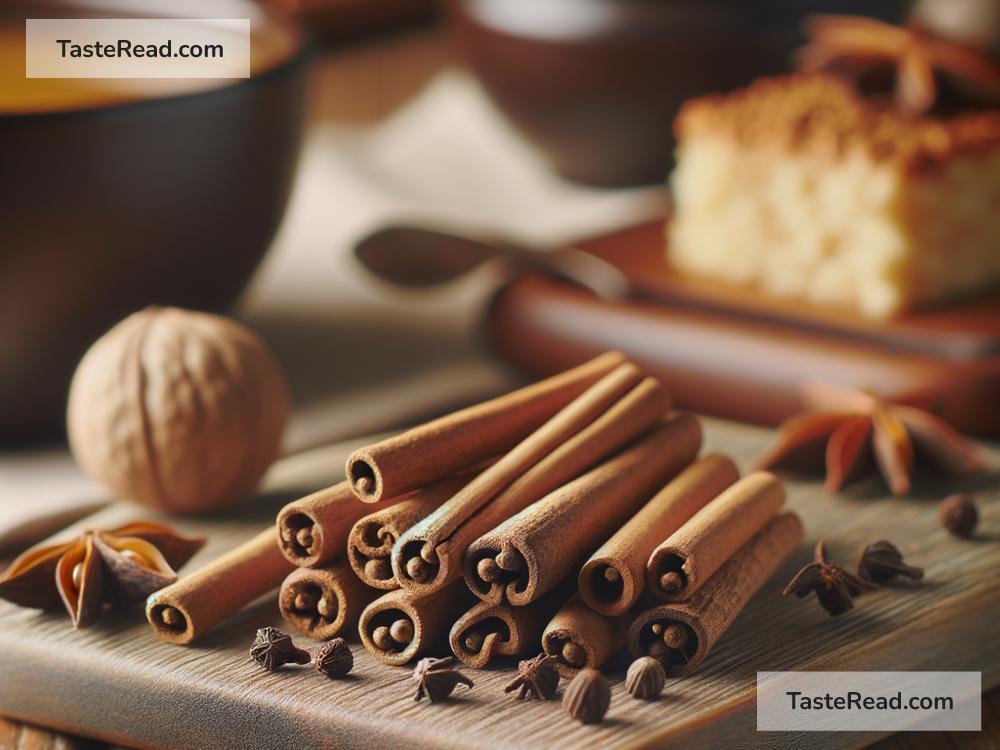Why Cloves Are Used in Both Sweet and Savory Dishes
Have you ever wondered why cloves find their way into both sweet desserts and hearty savory meals? This tiny, aromatic spice has been a favorite in kitchens around the world for centuries. Its unique flavor can transform dishes, adding warmth and depth no matter the recipe. Whether it’s a spiced cake, a steaming curry, or a soothing cup of tea, cloves are everywhere! But why is this one spice so versatile? Let’s explore why cloves shine in both sweet and savory cooking.
What Are Cloves?
Cloves are the dried flower buds of the Syzygium aromaticum tree, native to Indonesia. They look like tiny nails, and their name actually comes from the Latin word “clavus,” meaning nail. With their strong aroma and bold taste, cloves are a staple in numerous cuisines worldwide.
What makes cloves so special is not just their flavor but also their health benefits. Cloves contain essential oils, especially one called eugenol, which gives them their warm, aromatic smell and intense taste. Eugenol is also packed with antioxidants, making cloves beneficial for digestion, reducing inflammation, and even fighting off bacteria.
But besides their health benefits, it’s their flavor that keeps bringing chefs and home cooks back for more.
A Unique Flavor
Cloves have a very distinct taste. They’re warm, earthy, slightly sweet, and a little bit spicy, almost like a cross between cinnamon and black pepper. This complexity is why they work so well in both sweet and savory recipes. Their flavor has the power to enhance a dish without overpowering other ingredients, and just a small pinch can make a big difference.
The key to their versatility lies in this combination of sweetness and warmth. They can add comfort to desserts while deepening the flavors in savory dishes. It’s like they bring the best of both worlds to the table!
Cloves in Sweet Dishes
When you think of cloves in sweet dishes, classics like pumpkin pie, gingerbread, mulled cider, or spiced cookies probably come to mind. And for good reason! Cloves pair beautifully with other sweet spices like cinnamon, nutmeg, and allspice. Together, these spices create the cozy “warm holiday” flavor that we associate with desserts during festive seasons.
Even in simple treats like apple pie or banana bread, a pinch of ground cloves makes the overall flavor richer. In candies or syrups, cloves contribute a hint of spice, ensuring the sweetness isn’t too overwhelming.
If you’ve ever had chai tea or spiced coffee, you’ve already experienced how cloves can transform a beverage into something magical. Their slight spiciness adds balance to the sweetness and makes these drinks more interesting.
Cloves in Savory Dishes
While cloves are popular in sweet recipes, they’re just as important in savory cooking. In fact, not every spice can pull off this double act so well. Cloves add complexity to hearty dishes, bringing warmth and subtle spice to sauces, stews, meat dishes, and even vegetable curries.
In Indian, Middle Eastern, and African cuisines, cloves are used to season rice dishes and meat preparations like biryanis or kebabs. They also play a key role in spice blends like garam masala, which is a combination of spices that adds depth to curries and gravies.
When cooking savory recipes, cloves are often paired with ingredients like onions, garlic, and ginger. The spice works wonders, creating a harmony between the strong flavors in these dishes. It’s common to see whole cloves infused into stocks, soups, and slow-cooked dishes for a smoky, earthy undertone.
For example, in French cooking, cloves are sometimes stuck into onions to flavor soups or broths—a technique called cloute. Slow cooking releases their flavor without making the dish too sharp or overpowering.
The Balancing Act
One of the reasons cloves are so versatile is their ability to balance flavors in both sweet and savory meals. In desserts, they ensure sweetness doesn’t become cloying by adding a subtle spiciness. In savory dishes, they balance fatty, salty, or tangy notes with their warmth and aroma.
This balancing act makes them a go-to spice for cooks looking to create dishes that are well-rounded and flavorful.
How to Use Cloves
The way you use cloves can make a big difference in how your dish turns out. Whole cloves are often used for simmering in soups, broths, or larger dishes, where they can be removed before serving. Ground cloves, on the other hand, are more popular for baking and drinks, as they blend easily with other ingredients.
Because cloves are so strong, they should be used sparingly. A little goes a long way! If you’re new to using cloves, start with a small amount—just a pinch of ground cloves or a few whole pieces—and adjust as needed.
Conclusion
Cloves are a truly remarkable spice because of their versatility and depth of flavor. They complement sweetness in desserts and stand up to bold flavors in savory meals. Whether you’re making cookies, stews, or refreshing drinks, cloves can be your secret ingredient to elevate the dish.
So the next time you see cloves sitting in your spice cabinet, don’t overlook them. Experiment with their unique flavor, and you’ll soon understand why this tiny spice has stood the test of time in kitchens around the globe.


